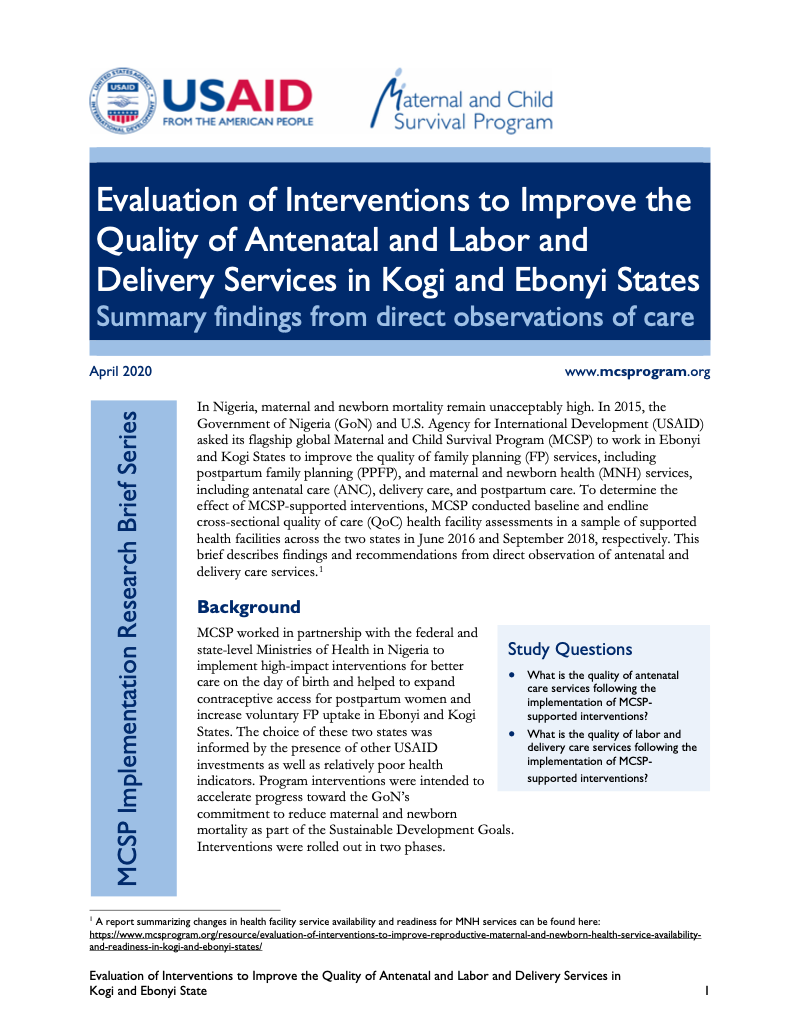
In Nigeria, maternal and newborn mortality remain unacceptably high. In 2015, the Government of Nigeria (GoN) and U.S. Agency for International Development (USAID) asked its flagship global Maternal and Child Survival Program (MCSP) to work in Ebonyi and Kogi States to improve the quality of family planning (FP) services, including postpartum family planning (PPFP), and […]
Read More…
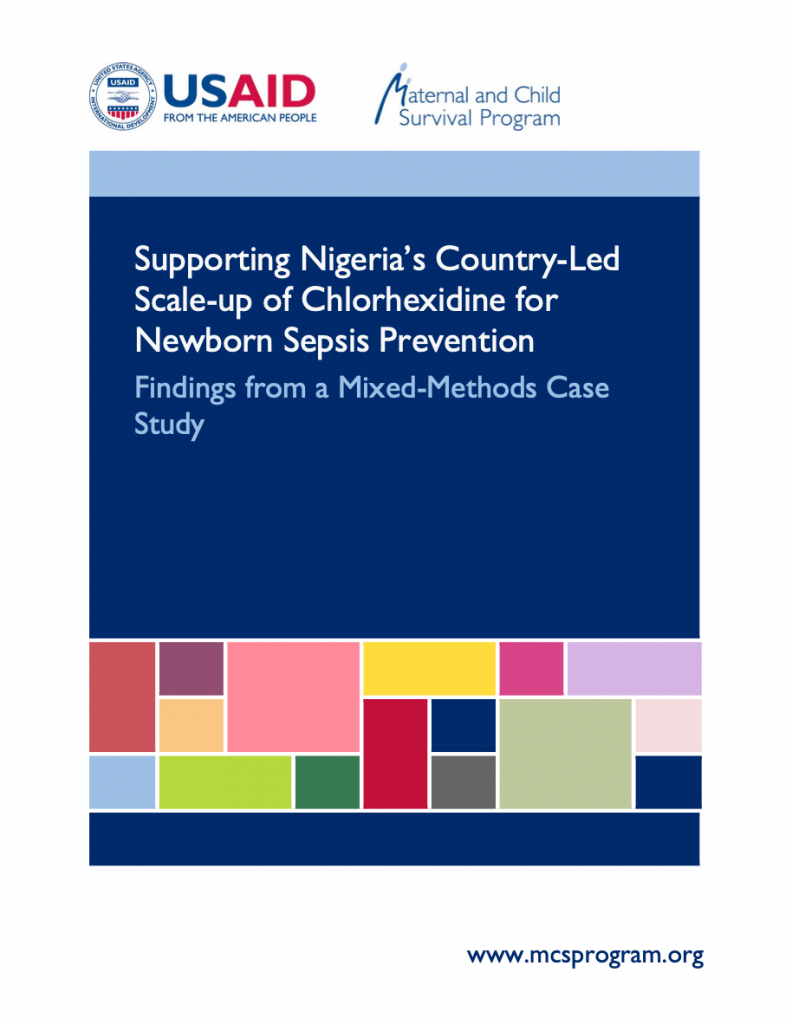
Nigeria’s neonatal mortality rate was estimated at 38 per 1,000 live births in 2013, one of the highest in the world.1 About one-fourth of these deaths were estimated to be due to infections, many of which could be prevented through proper umbilical cord care.2 Chlorhexidine (CHX) gel is an over-the-counter product that reduces neonatal infection […]
Read More…
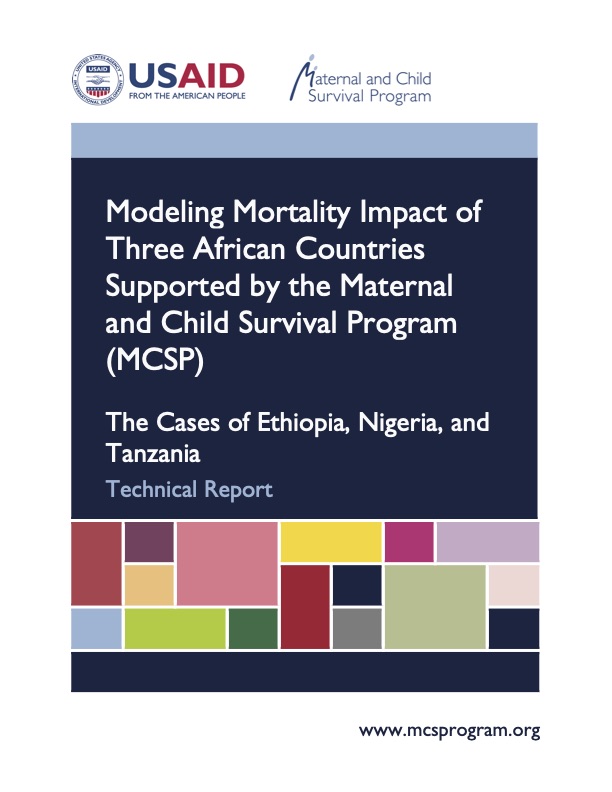
This report summarizes an impact modeling exercise that MCSP conducted to assess country progress as well as its contributions to changes in maternal, newborn, and child mortality trends. MCSP used the Lives Saved Tool (LiST) to estimate the mortality impact of the documented changes in coverage of MCSP-supported HIIs. […]
Read More…
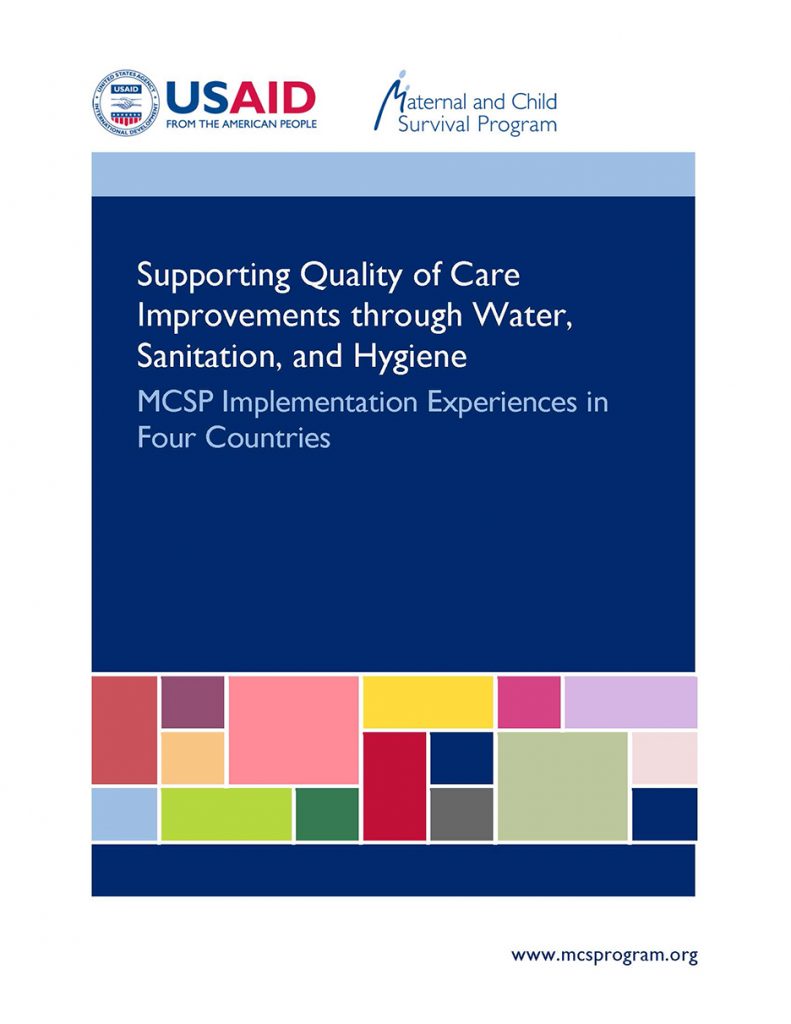
MCSP worked to improve health care facility WASH conditions and practices to contribute to quality of care (QoC) improvements and reductions of maternal and newborn infections through MCSP’s innovative Clean Clinic Approach. This report highlights experiences from four MCSP country programs (Haiti, Democratic Republic of the Congo, Guatemala, and Nigeria) that used WASH investments as […]
Read More…
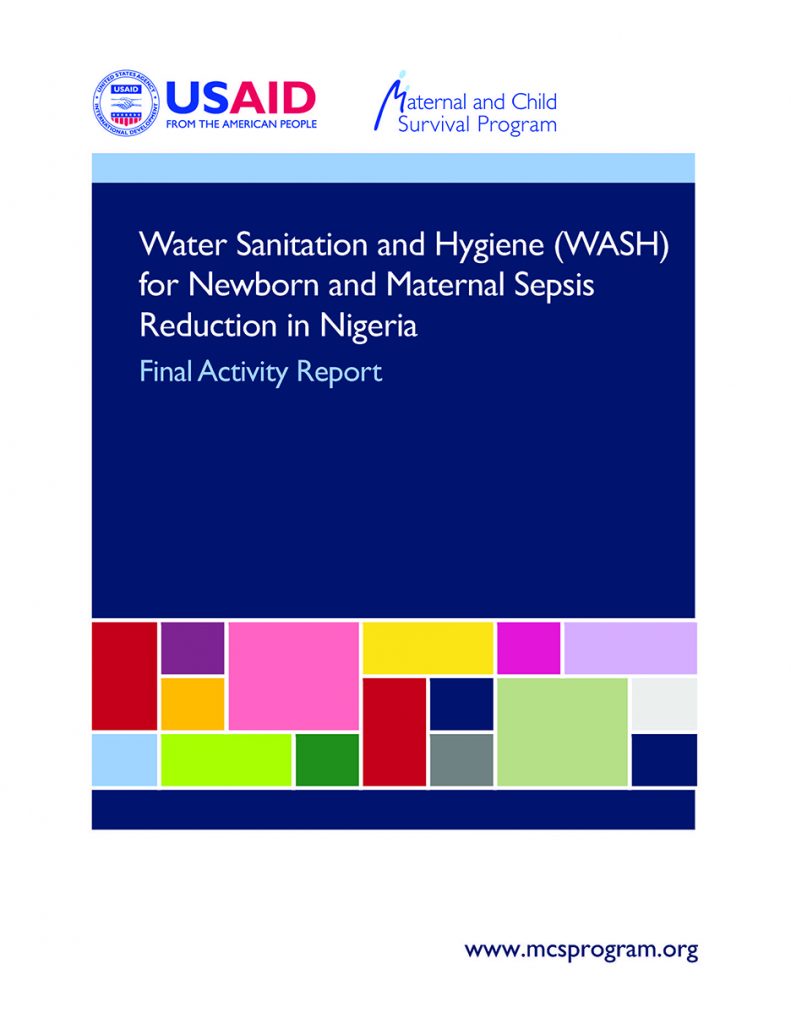
In an effort to improve the quality of facility- based MNCH services, MCSP launched a three-phased learning activity on improved hygiene for maternal and newborn sepsis reduction focused on improving hygiene around the day of birth in Nigeria. The purpose of this activity was to build on the quality improvement activities being implemented by MCSP […]
Read More…
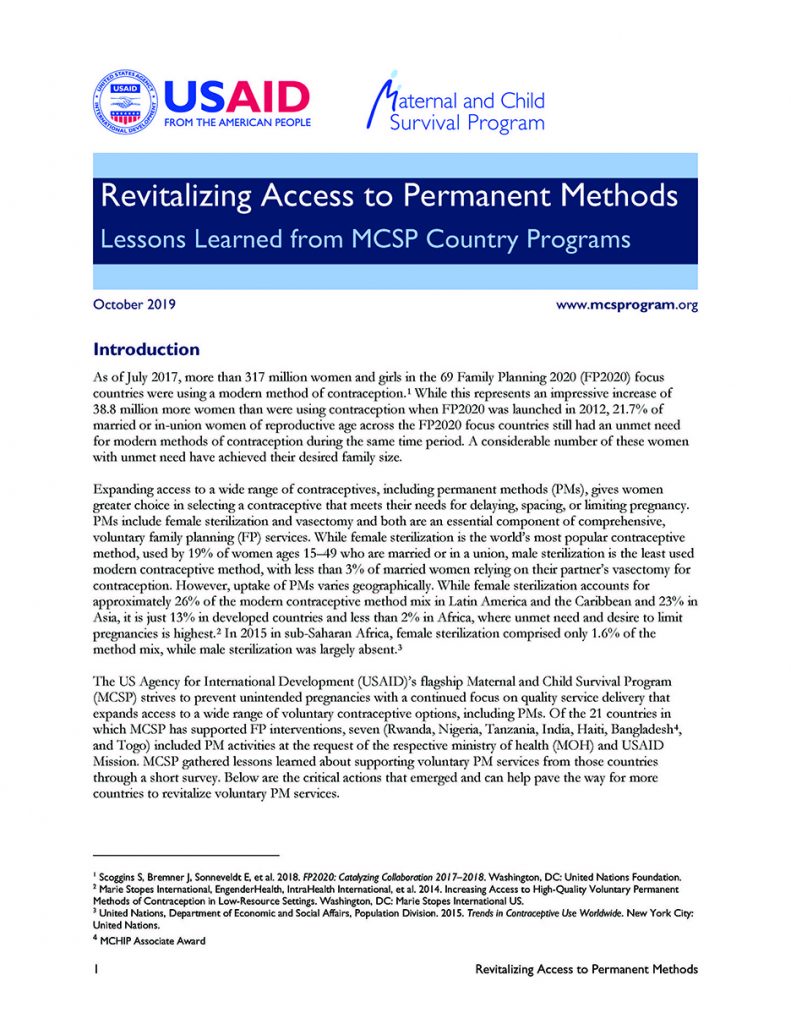
MCSP strives to prevent unintended pregnancies with a continued focus on quality service delivery that expands access to a wide range of voluntary contraceptive options, including permanent methods (PM). Of the 21 countries in which MCSP has supported FP interventions, seven (Rwanda, Nigeria, Tanzania, India, Haiti, Bangladesh, and Togo) included PM activities at the request […]
Read More…
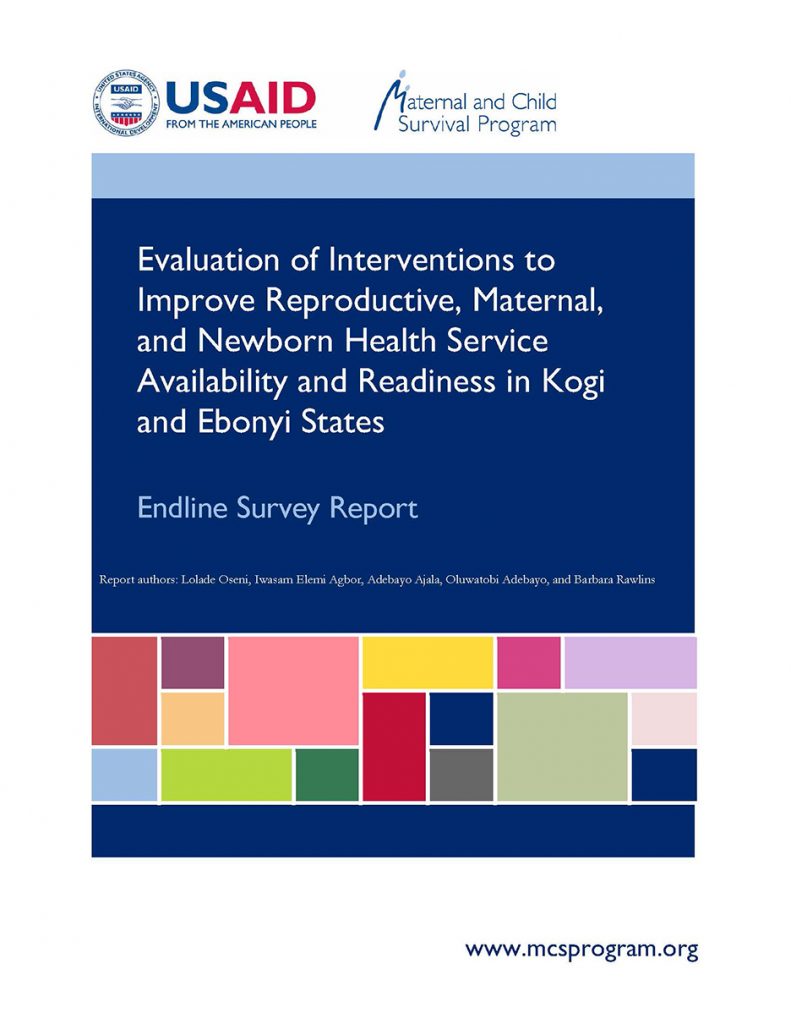
In Nigeria, MCSP focused on improving maternal and newborn health care services in Ebonyi and Kogi states by implementing high-impact interventions for better care on the day of birth when most maternal and newborn deaths occur. To determine the effect of MCSP’s RMNH quality improvement interventions in health facilities, baseline and endline quality of care […]
Read More…
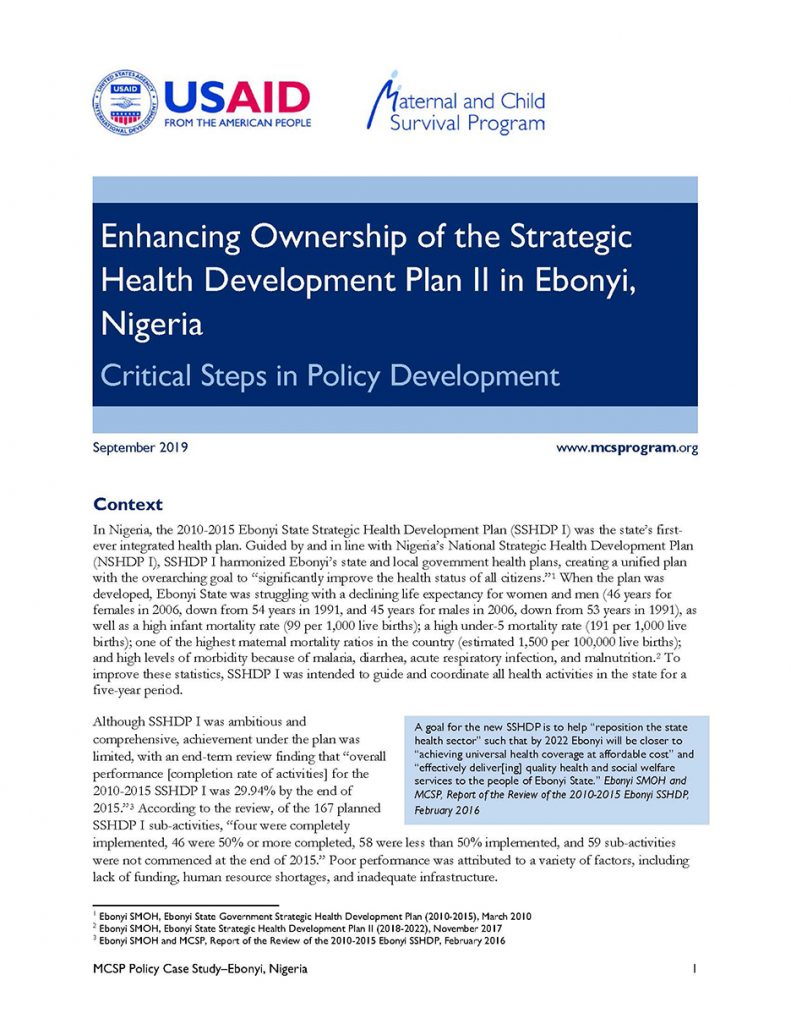
In Nigeria, the 2010-2015 Ebonyi State Strategic Health Development Plan (SSHDP I) was the state’s first-ever integrated health plan. As SSHDP I came to a close, the Ebonyi State Ministry of Health (SMOH) reached out to partners including MCSP to support the development of SSHDP II (2018-2022). Given the state’s limited success under SSHDP I, […]
Read More…
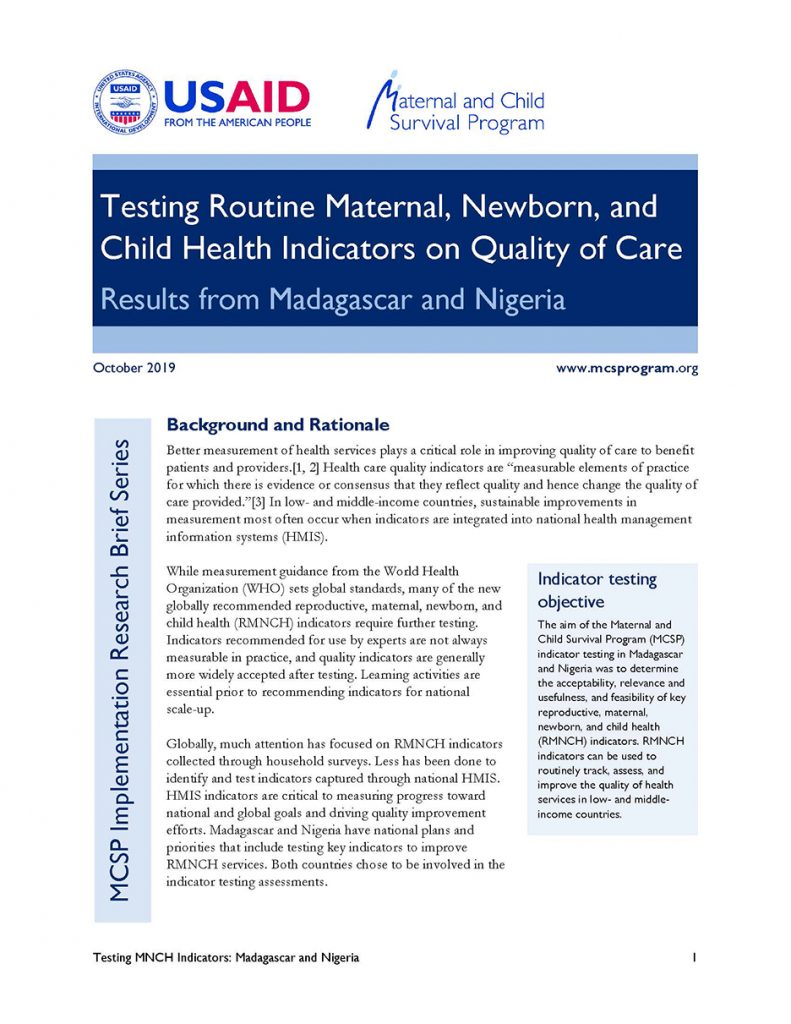
This brief presents findings from assessments of WHO-recommended routine RMNCH indicators in Madagascar and Nigeria. The aims of the two assessments were to determine the acceptability, relevance and usefulness, and feasibility of the indicators for quality improvement efforts. The assessments also looked into integrating the RMNCH indicators into the national HMIS. […]
Read More…
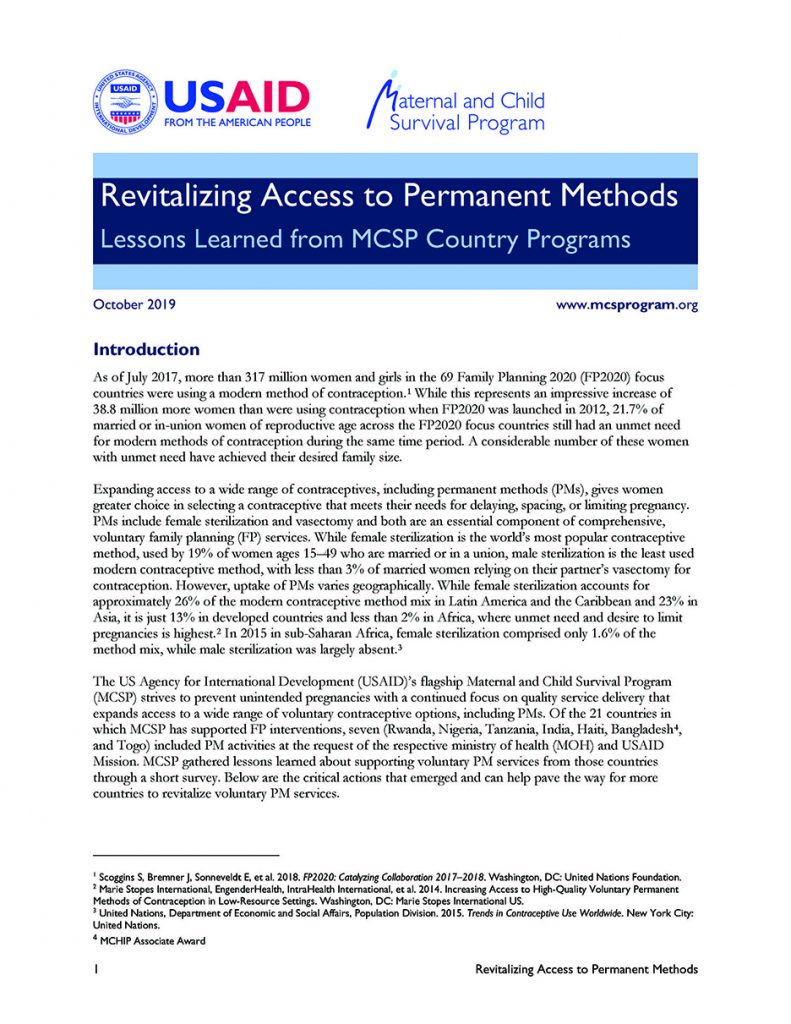
MCSP strives to prevent unintended pregnancies with a continued focus on quality service delivery that expands access to a wide range of voluntary contraceptive options, including permanent methods. Of the 21 countries in which MCSP has supported family planning interventions, seven (Rwanda, Nigeria, Tanzania, India, Haiti, Bangladesh, and Togo) included permanent method activities at the […]
Read More…










